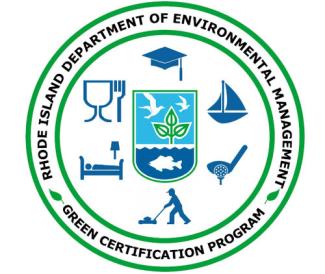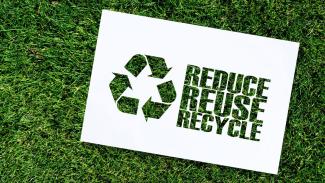Green Manufacturing

In today’s competitive market, staying ahead means more than keeping up with demand. The Green Manufacturing Certificate offers manufacturers a unique opportunity to enhance efficiency, cut costs, and improve public perception—all while reducing environmental impact. This certification provides a practical framework for assessing and improving your operations and positioning your business for growth and success. Unlock new business opportunities and help protect our environment for future generations.
The Green Manufacturing Certificate, administered by the Rhode Island Department of Environmental Management (RIDEM) in collaboration with the Rhode Island Manufacturers Association (RIMA), is a substantial way to recognize manufacturers committed to sustainable practices within the state. Established to reduce environmental impact across various industries, the program provides a self-assessment workbook that allows businesses to audit and improve their environmental performance. After completing the workbook and submission to DEM, each section will be scored to confirm that the certification threshold has been met.
Similar to other RIDEM initiatives like the Green Hotels and Green Breweries certifications, the Green Manufacturing Certification encourages participants to adopt practices that minimize pollution, conserve resources, reduce waste, and enhance overall sustainability. By achieving certification, manufacturers demonstrate their dedication to environmental stewardship and gain tangible benefits such as cost savings through identified efficiencies.
More and more, companies are prioritizing sustainability when evaluating suppliers. By becoming certified, you will demonstrate shared values and willingness to partner on sustainability issues. Green certification is also a great first step to getting ready for additional assessments often required to do business with larger corporations.
Upon certification, your company will be eligible for the following:
- Rhode Island Manufacturing Green Certification logo for advertising (for website, literature, decals, etc.).
- A listing on the DEM website identifying your business as Rhode Island-certified as being environmentally preferable.
- Recognition of certification in the AAA Rhode Island guidebook.
- Free ongoing technical assistance from the Rhode Island Department of Environmental Management on reducing environmental impacts while saving money.
Certified Green Manufacturing Facilities
(As of August 28, 2025)
Facility Name |
City/Town |
Telephone |
Certificate # |
|---|---|---|---|
| Senesco Marine, LLC | North Kingstown | 401-295-0373 | 001 |
| Raytheon Company | Portsmouth | 401-842-4335 | 002 |
| Ward’s Manufacturing | Warren | 401-441-0453 | 003 |
| Toray Plastics | North Kingstown | 401-294-4511 | 004 |



